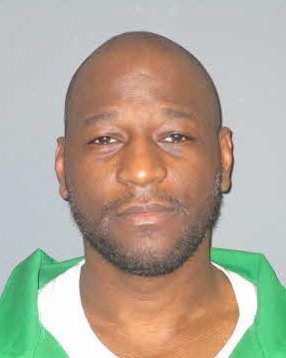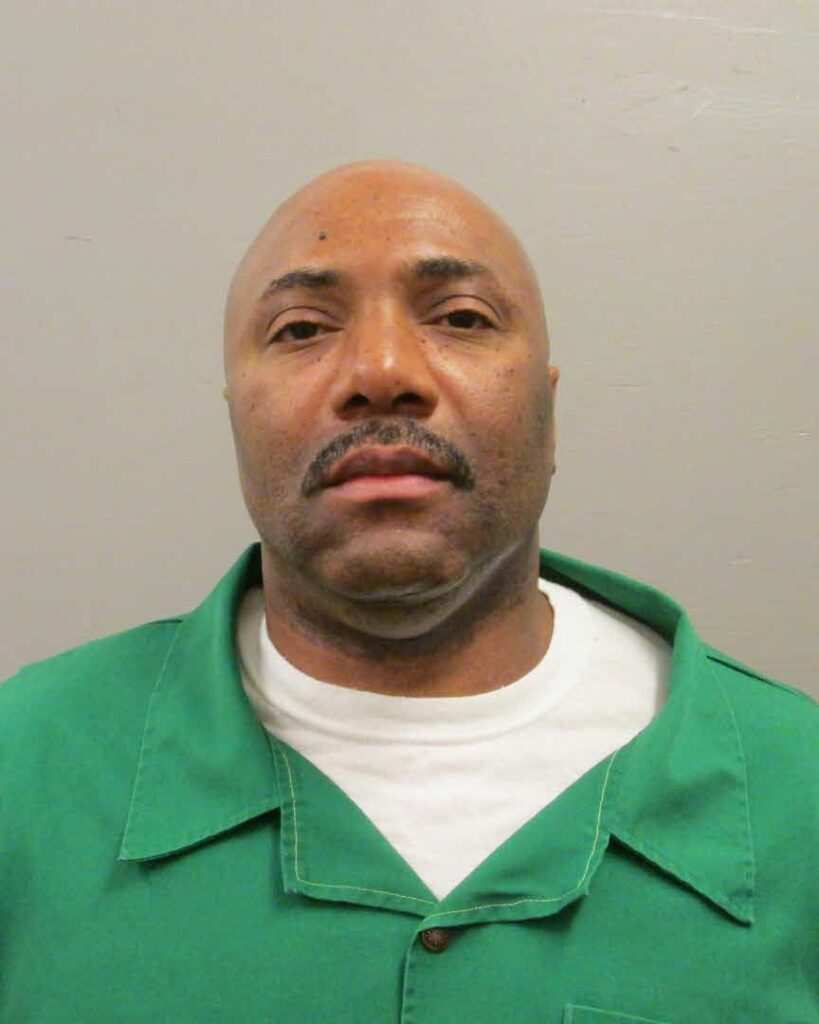Two days before a South Carolina death row inmate was scheduled to die in the electric chair, the state Supreme Court granted him a stay.
It would have been the state’s first execution in nearly a decade.
Brad Sigmon, 63, was initially scheduled to be executed Friday but was granted a stay by the state’s highest court Wednesday afternoon.
In the order, court justices vacated Sigmon’s execution notice and said it would not issue a new one until the state Department of Corrections could carry out an execution using the firing squad. Then, Sigmon would be allowed to choose between death by firing squad or electrocution — options that were solidified under a newly passed South Carolina law.

The court also vacated the execution notice of Freddie Owens, who was scheduled to be put to death June 25, staying his execution until the firing squad is available as an option as well.
State lawmakers changed the execution law in May due to the Department of Corrections’ inability to carry out an execution by lethal injection. Under the state’s old execution law, the lethal injection was the default method of execution, unless an inmate specifically chose to die in the electric chair, and the state could not force them to do so.
In the 2000s, drug companies began to crack down on how their products were being used. They stopped selling the drugs necessary for the lethal injections to states that sought to use them in executions, including South Carolina.

Unable to purchase the drugs for the lethal injection, and unable to force inmates to die in the electric chair, the only other approved method, South Carolina was suddenly unable to carry out executions, and three inmates on death row — Sigmon, Owens and Richard Moore — all received stays of executions.
Lawmakers set out to change state law so executions could resume. They made the electric chair the default method, but allowed inmates to choose lethal injection or the firing squad if those methods were available.
Currently, the electric chair is the only method of execution the S.C. Department of Corrections can offer. The state has never used the firing squad as an official method of execution, so Corrections’ officials are still trying to develop procedures and protocols for carrying out an execution by firing squad.
The justices wrote in their decision that death row inmates had a statutory right to elect their manner of execution. They directed the courts’ clerk, who issues execution notices, not to issue one until the Department of Corrections finishes developing their protocols for the firing squad.
S.C. state Sen. Dick Harpootlian, D-Richland, said he was “encouraged to see the Supreme Court give effect to the law we passed.”
Harpootlian, a former solicitor who has tried death penalty cases, pushed for the addition of the firing squad as a method of execution in the state’s new execution law. He maintained during debate over the law that the electric chair was a horrible way to die and that the firing squad is much more humane.
Harpootlian was upset after the executions were scheduled with the electric chair as the only available method of execution. He questioned then why another option couldn’t be offered.
“While the taking of a human life is disastrous, horrible and repugnant under any circumstances … it should be as painless as possible,” Harpootlian said. “The electric chair is not that.”
Harpootlian said the state should quickly be able to offer the firing squad as a method of execution.
“It should not be a complicated process,” Harpootlian said.
In a statement Wednesday, Corrections department spokeswoman Chrysti Shain reiterated that the department is in the process of setting procedures to carry out an execution by firing squad.
“The department is moving ahead with creating policies and procedures for a firing squad,” Shain said. “We are looking to other states for guidance through this process. We will notify the court when a firing squad becomes an option for executions.”
Frank Knaack, the executive director of the ACLU of South Carolina, celebrated the court’s decision.
“We’re obviously pleased that the executions are, at least as of now, postponed,” Knaack said.
However, Knaack called the death penalty “racist, arbitrary and error prone,” and called for it to be abolished. He pointed out that who gets sentenced to death heavily depends on the stance of their local solicitor, and factors such as race can heavily affect the decision to impose a death sentence.
“This is positive news, but it’s positive news within a very horrible system that should not exist,” Knaack said.
Sigmon was convicted in 2002 of murdering his ex-girlfriend’s parents, David and Gladys Larke. He beat the pair to death with a baseball bat in their Greenville County home, according to a Spartanburg Herald Journal story written about Sigmon’s arrest. Sigmon also attempted to kidnap his ex-girlfriend, but she managed to escape, though she was shot in the foot.
Tensions between Sigmon and the Larkes were high after his girlfriend ended their relationship. Sigmon and the girlfriend lived together in a trailer next door to her parents, and her parents served Sigmon with eviction papers after the break-up, according to court documents.
After the murders, Sigmon fled the state, leading police on an 11-day man hunt across the Southeast. He was located and captured at a campground in Tennessee.
When he was arrested, Sigmon confessed to Tennessee officers and Greenville County detectives, according to court documents. He admitted his guilt again at trial and has not disputed his guilt during any recent hearings over his execution.
Sigmon was granted a stay of execution on Feb. 4, 2021, due to the state’s inability to purchase lethal injection drugs. Once the state was able to resume executions, however, the state Supreme Court issued a new date for Sigmon’s execution on May 27.
Before the state Supreme Court issued a stay of execution for Sigmon and Owens, the pair were involved in two other legal actions, one in a federal appellate court and one in circuit court, in addition to the state Supreme Court.
Last Monday, Sigmon and Owens’ attorneys appeared in circuit court to argue that South Carolina’s new execution law is unconstitutional. Specifically, the attorneys argued that it was unfair that the law apply retroactively to inmates who are already on death row because, under the new law, the inmates will be forced to die by what is considered a more painful method.
They also questioned why the state Department of Corrections isn’t able to offer other legal methods of execution like lethal injection.
Corrections officials have testified for years that they could not purchase the drugs for a lethal injection because drug companies have refused to sell to them. Other states, however, have been able to purchase the drugs because they have shield laws — which protect the name of drug companies selling the lethal injection drugs from the public. South Carolina lawmakers have been unable to pass a shield law.
Attorneys for the governor and Department of Corrections argued that inmates were sentenced to death, not a particular method of execution.
A Richland County judge ultimately turned down Owens and Sigmon’s attorneys’ request for an injunction, which would have stopped the new law from taking affect.
Last Thursday, Owens’ and Sigmon’s attorneys filed an appeal in that case and requested that the state Supreme Court take it up quickly.
Owens and Sigmon’s other outstanding case was in a federal appellate court, where his attorneys are arguing that the electric chair may be a violation of the Eighth Amendment, which protects from cruel and unusual punishment.
The attorneys initially appeared in federal court in Florence to argue the case last Wednesday. There, the attorneys acknowledged that the Supreme Court has stood by the use of the electric chair in the past, but said the issue is “ripe to revisit at this point.” The attorneys asked for a preliminary injunction to stall Sigmon’s upcoming execution.
Attorneys for the governor and corrections department argued that the Supreme Court’s stance on the electric chair is clear and the inmate’s lawyers were unlikely to succeed on the merits of their argument. Therefore, they said, the injunction should not be granted.
Ultimately, a federal judge denied the injunction.
Owens’ and Sigmon’s attorneys Monday appealed the case to the 4th Circuit Court of Appeals. On Tuesday, they requested an emergency injunction.
A third inmate, Richard Moore, had earlier received a stay of execution, but the state Supreme Court has not yet rescheduled his execution.
Moore was sentenced to death in the 1999 fatal shooting of James Mahoney, a convenience store clerk in Spartanburg County, S.C.
While Moore has exhausted his regular appeals, Moore has an appeal pending with the state Supreme Court that has yet to be resolved.
___
© 2021 The State Distributed by Tribune Content Agency, LLC



